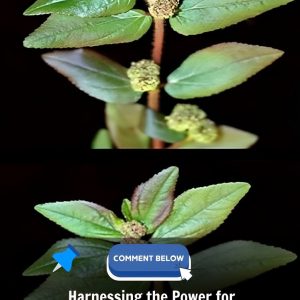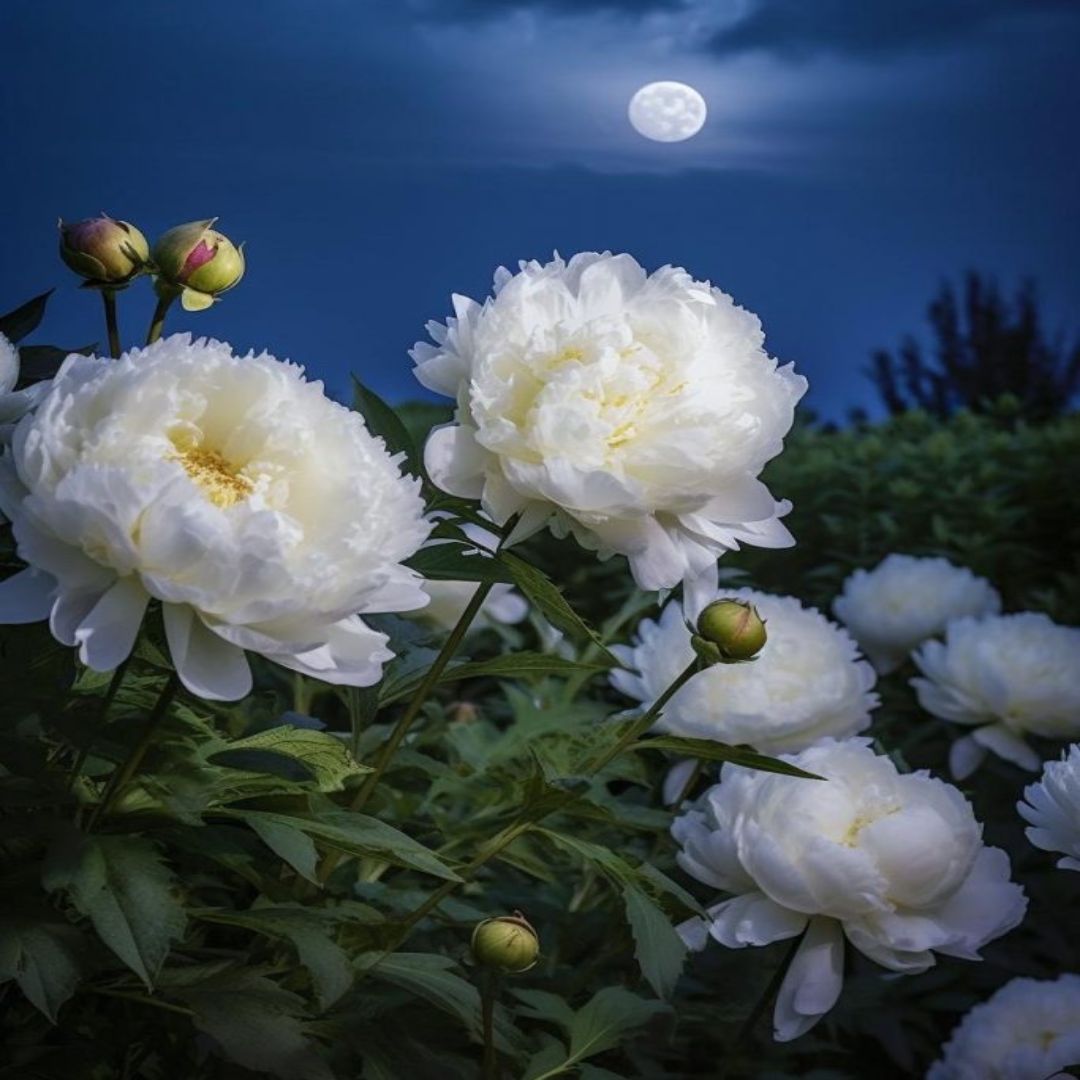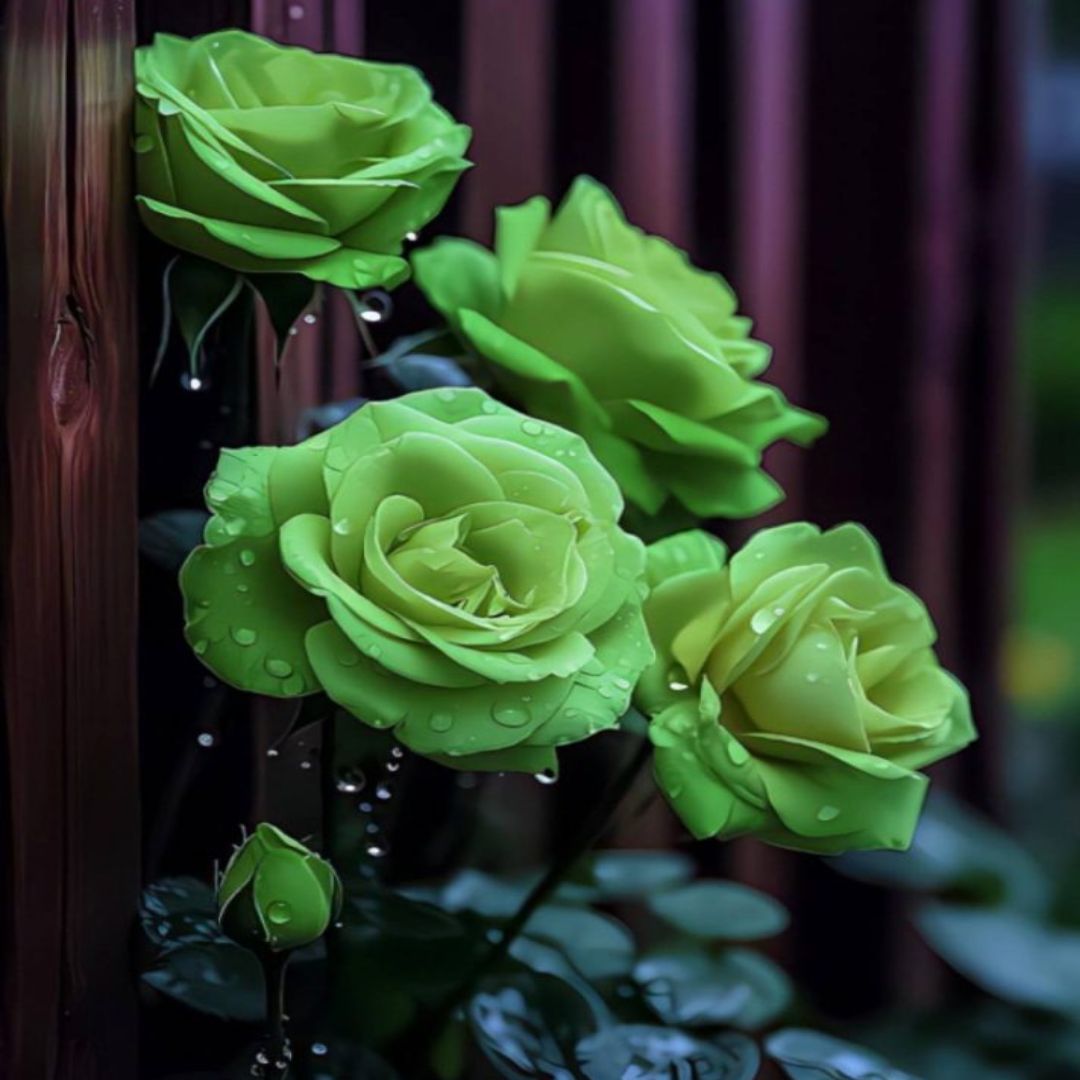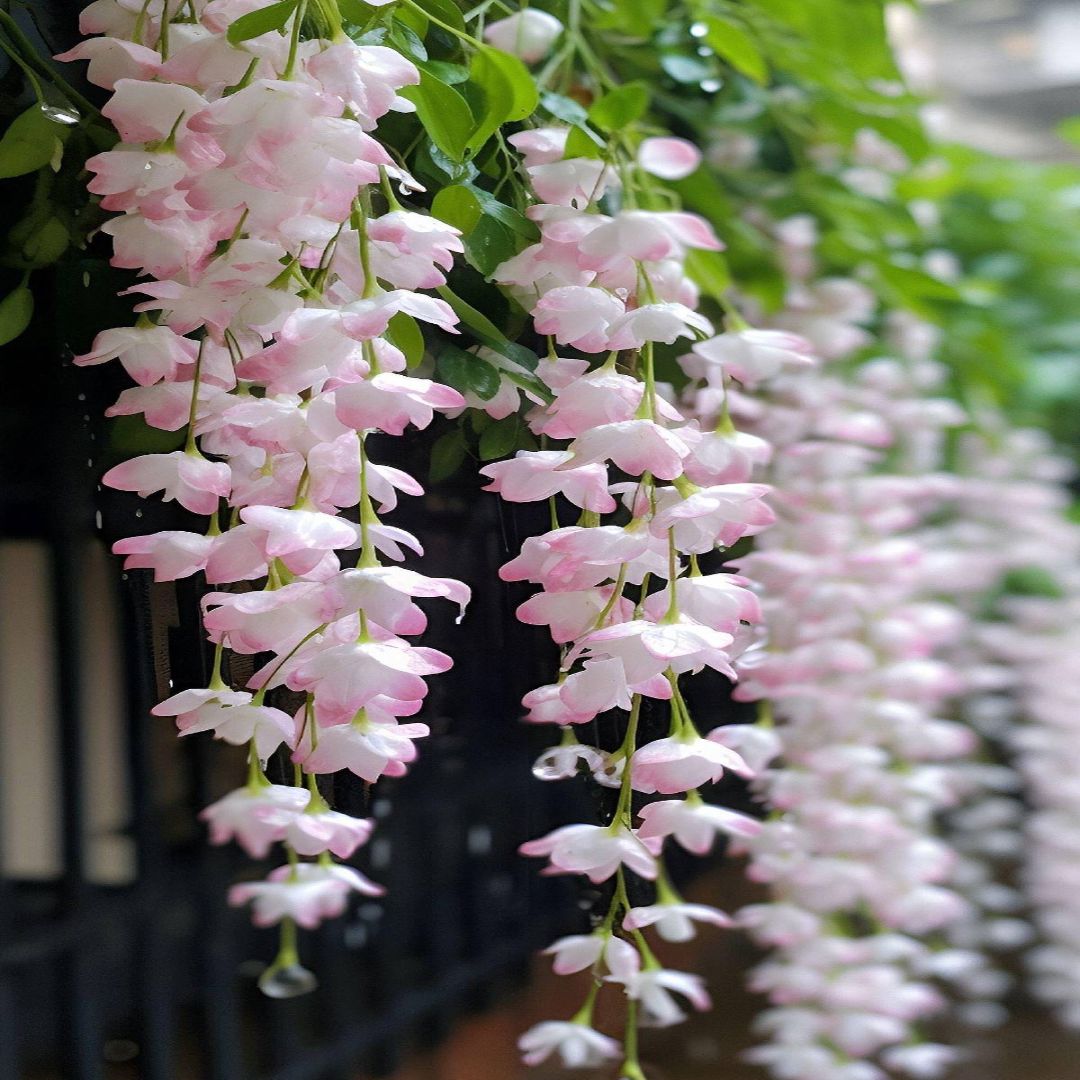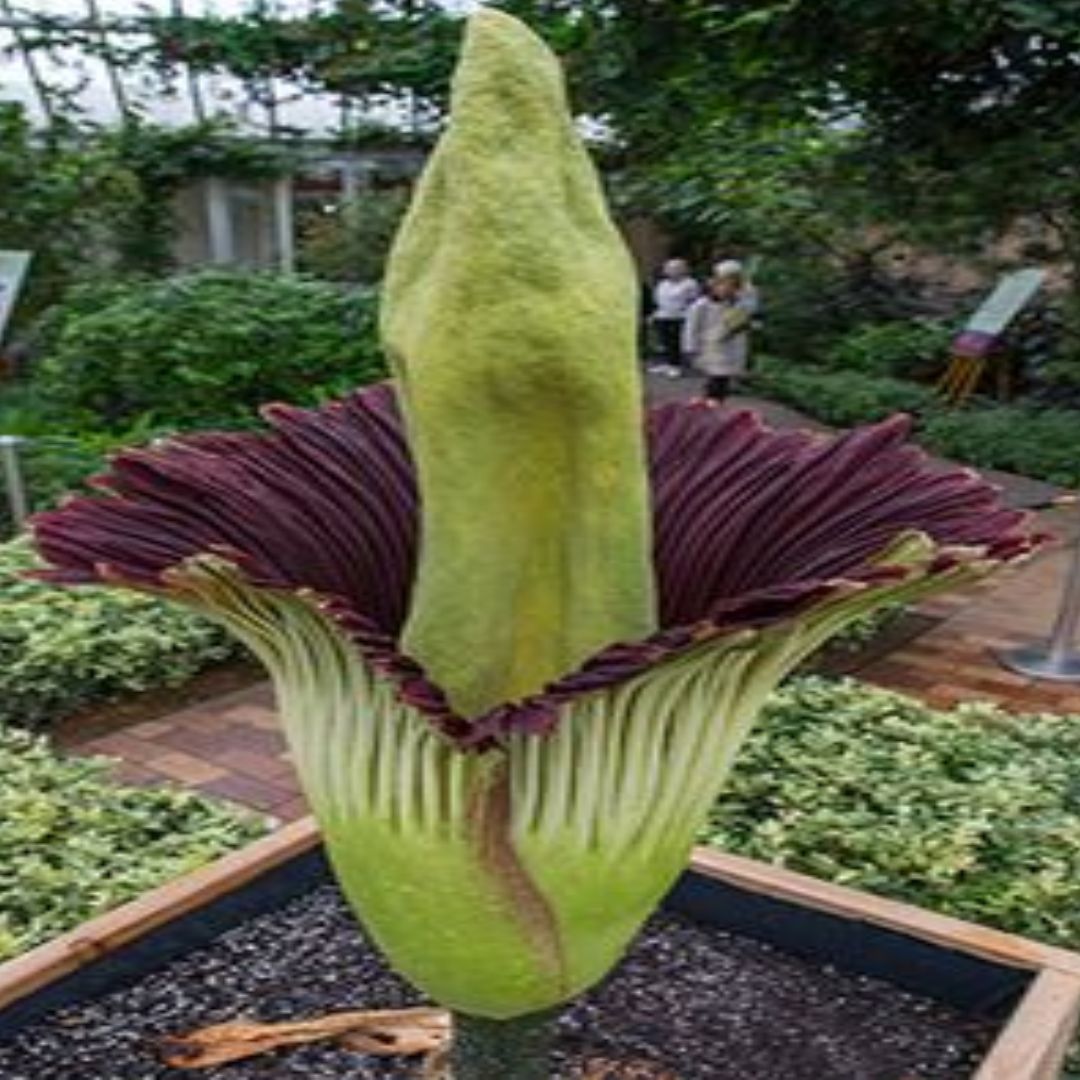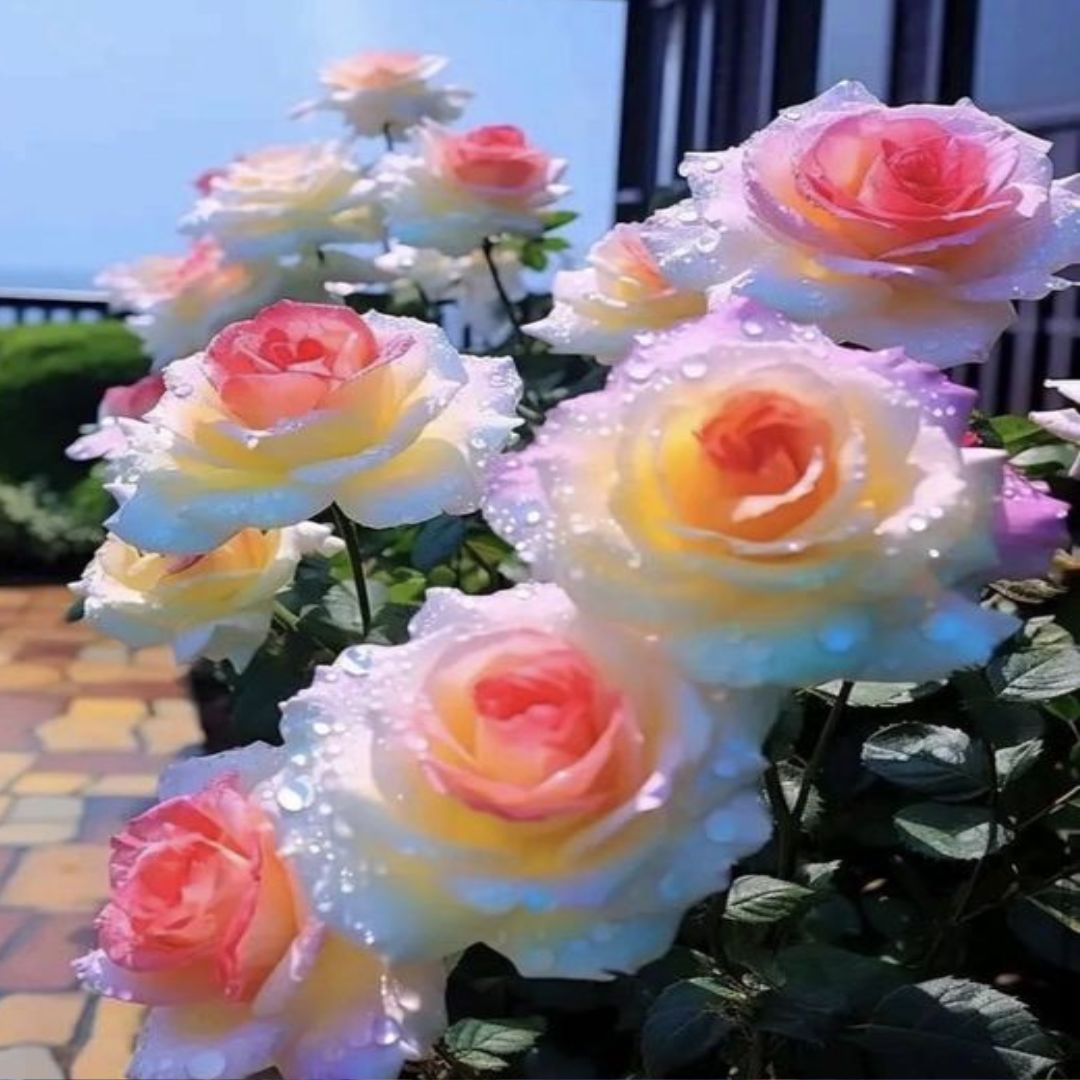Explore beautiful Rose Color Houseplants for that unmistaken red-pink hue in your plant collection and add a magnificent dash of colors to your rooms!
These Rose Color Houseplants represent the famous hue of rose in the magnificent shade of red-pink. Grow them in your rooms for the awesome colors!
1. Dottie
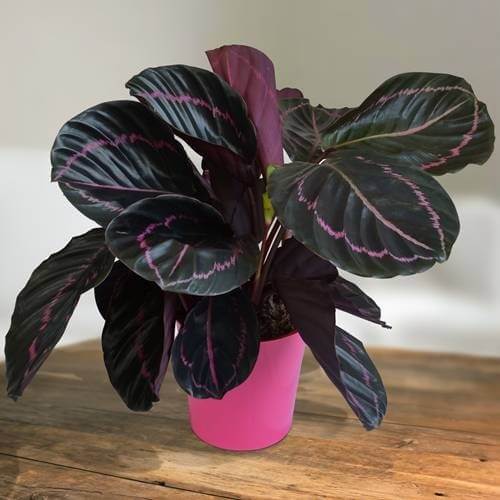
Botanical Name: Calathea roseopicta ‘Dottie’
It features deep green foliage that looks almost black with fuchsia pink outlines on each leaf. Mist ‘Dottie’ regularly to maintain humidity and the best growth.
2. Red Aloe
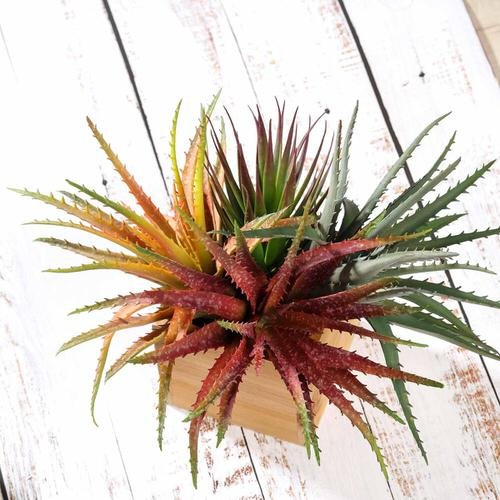
Botanical Name: Aloe cameronii
This slow-growing aloe is loved for its charming red, but you have to keep it in bright sunlight. The plant will surprise you with copper-red foliage.
3. Red Rubin
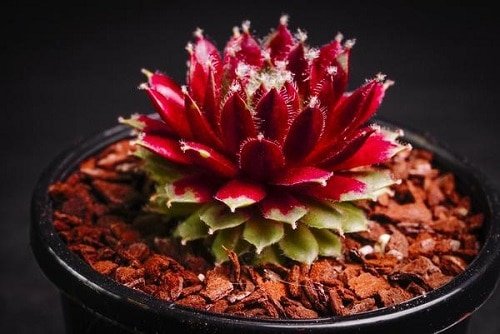
Botanical Name: Sempervivum ‘Red Rubin’
‘Red Rubin’ has evergreen, large rosettes of fleshy emerald green foliage patterned in red-burgundy tips. The color deepens in cool temperatures.
4. Red Pagoda
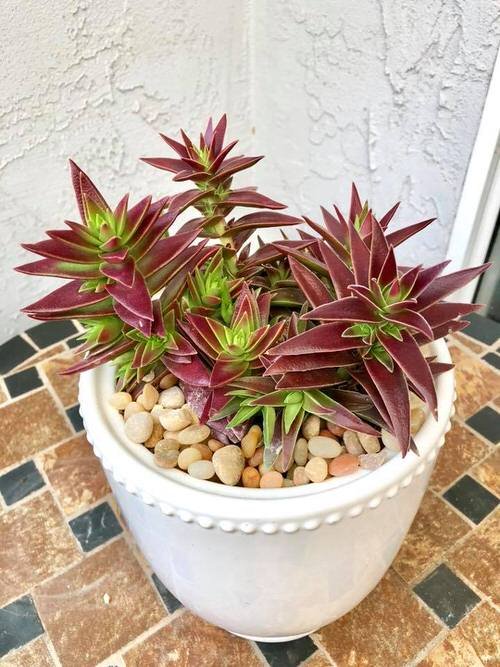
Botanical Name: Crassula capitella
This branching succulent offers fleshy yellow-green leaves adorned in bright red tips. The color gets more intense in winter in response to cool nights and bright sun.
Note: Place the plant in full sun with some shade with protection from afternoon sun in hot months for best leaf color.
5. Calathea Rosey
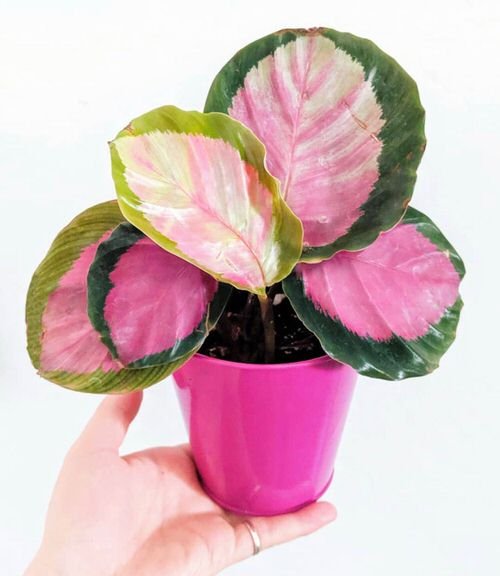
Botanical Name: Calathea roseopicta ‘Rosey’
‘Rosey’ features large oval-shaped with green margins and a pink center with purple undersides that fold during the night.
7. Florida Sweetheart Caladium
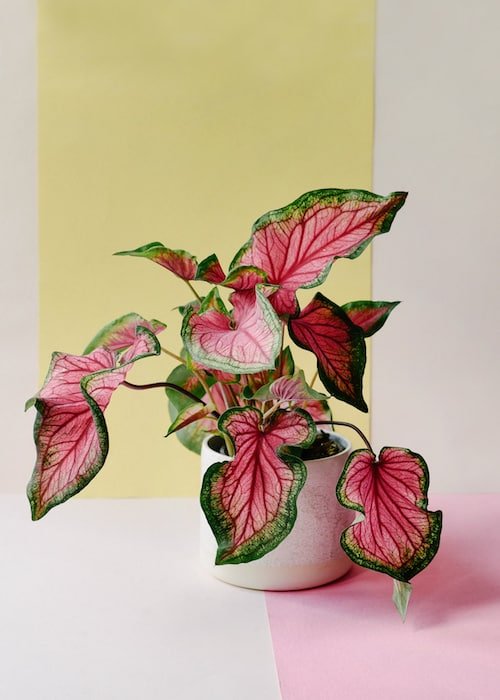
Botanical Name: Caladium ‘Florida Sweetheart’
This strap-leaved variety offers broad and small-sized foliage in pink-red shades with green ruffled edges. It looks great in small pots.
8. Beleaf Begonia
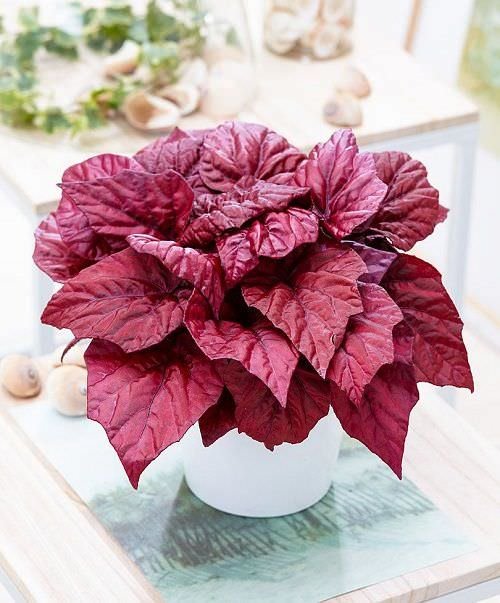
Botanical Name: Begonia BeLeaf ‘Inca Flame’
If you are searching for a rose-hued houseplant, then this stunning variety is perfect for you. The large heart-shaped leaves have prominent veins drenched in a rosy-pink hue.
9. Lindsayana Echeveria
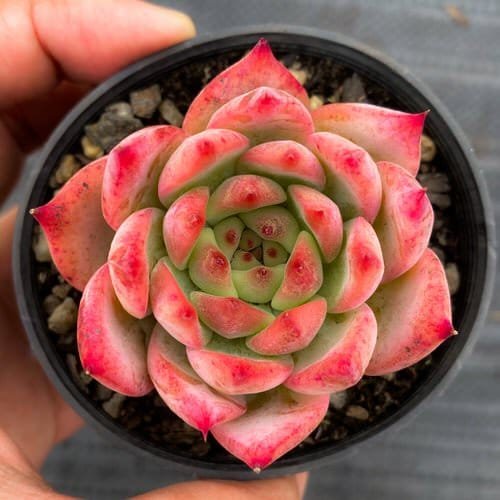
Botanical Name: Echeveria ‘colorata f. lindsayana’
You can add this succulent in your indoor gardens for that rosy shade! The soft magenta leaf tips contrast well with dark-colored succulents in your home.
10. Powder Puff Cactus
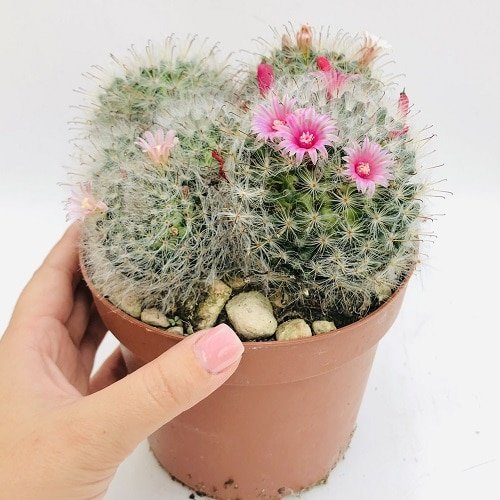
Botanical Name: Mammillaria bocasana ‘Roseiflora’
‘Roseiflora’ is popular for its pink or rose-colored blooms. This clump-forming cactus has globular to cylindrical stems with several white, hair-like radial spines.
11. Graptoveria ‘Spirit of ’76’
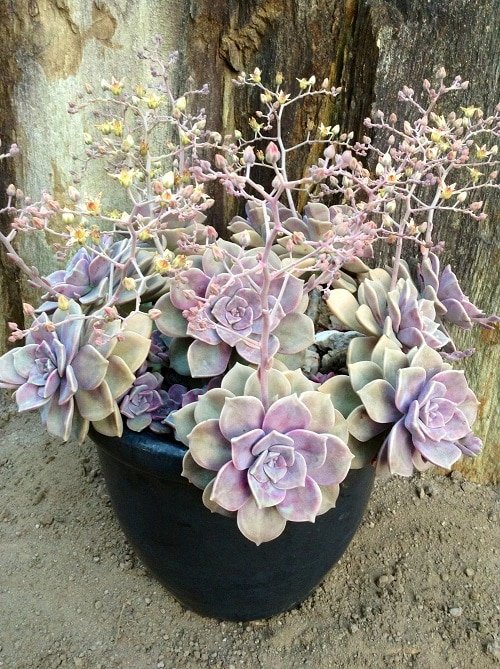
Botanical Name: Graptoveria ‘Spirit of ’76’
This rosette-forming small succulent produce lilac to pink-gray rounded foliage. It does well in full sun but also manages in partial light.
12. Blushing Bride
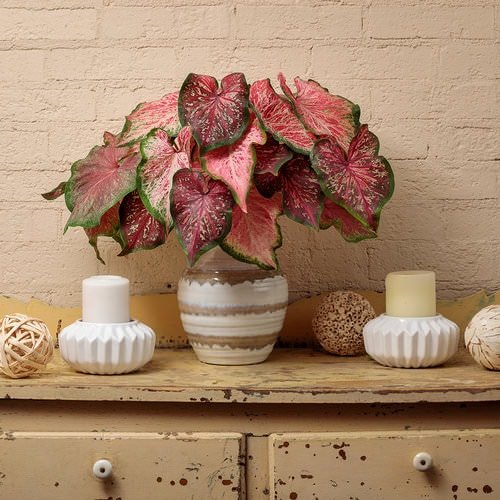
Botanical Name: Caladium ‘Blushing Bride’
A strap pink cultivar, this caladium exhibits rose-pink spots with green borders on heart-shaped leaves.
13. Valentine Echeveria
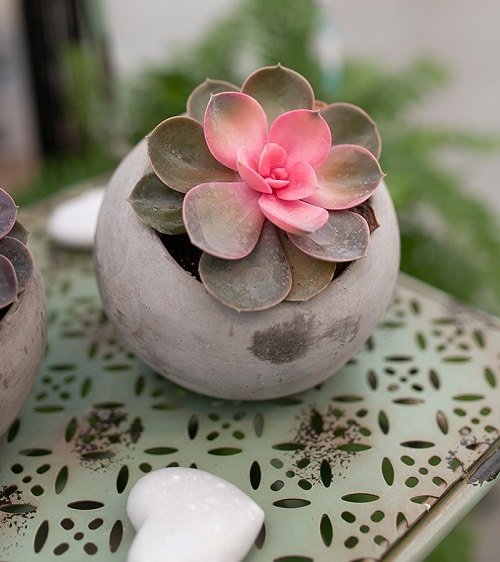
Botanical Name: Echeveria ‘Valentine’
‘Valentine’ features large rosettes of burgundy leaves with light red margins. The heart-shaped foliage becomes frilly with age.
14. Anthurium
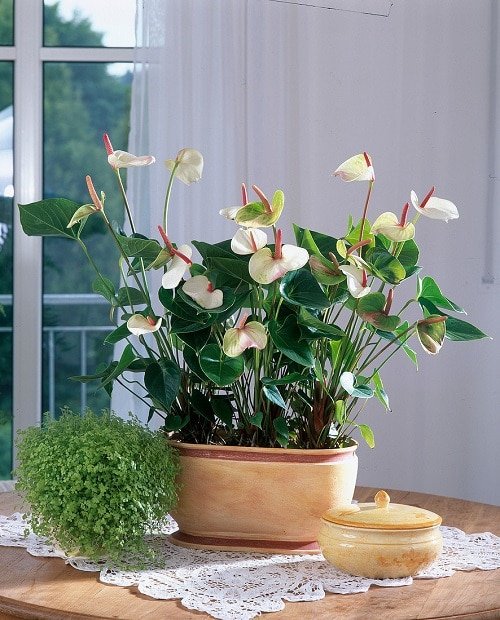
Botanical Name: Anthurium andraeanum
This beautiful houseplant offers waxy, heart-shaped red spathes with attractive contrasting deep green foliage.
15. Spitfire Rex Begonia
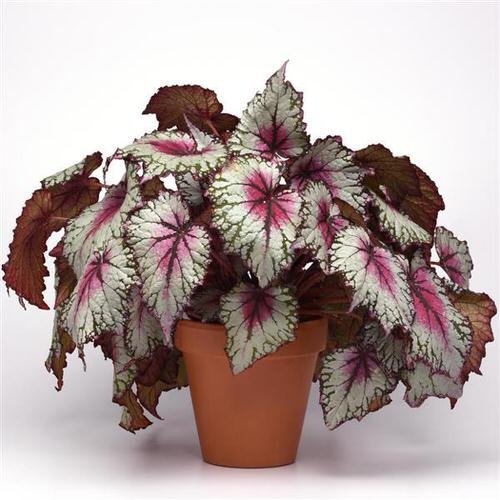
Botanical Name: Begonia ‘Spitfire Rex’
The plant displays striking red-pink heart-shaped leaves with silver and green edges. It grows up to 8-12 inches tall and wide.
16. Poinsettia
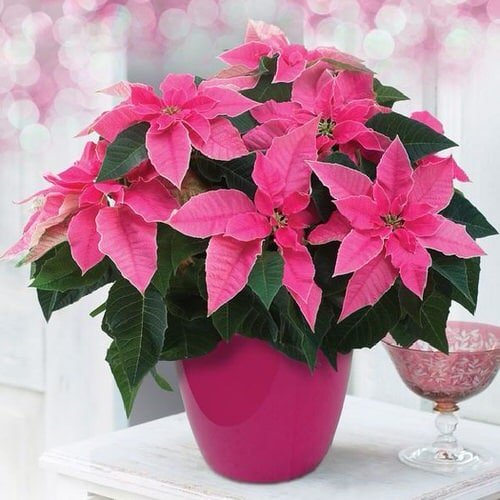
Botanical Name: Euphorbia pulcherrima
‘Winter Rose’ and ‘Prestige Red’ are two great options with rose-colored leaves. They look best when paired with other dark foliage plants indoors.
17. Siam Aurora
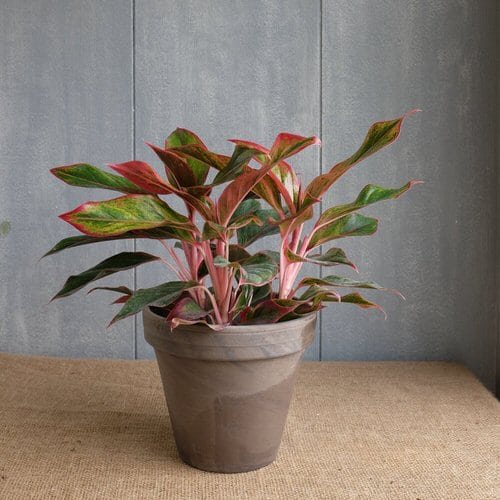
Botanical Name: Aglaonema ‘Siam Aurora’
‘Siam Aurora’ is popular for bold rosy pink edges on green leaves. It grows upright and withstands low light conditions.
18. Red Pancakes
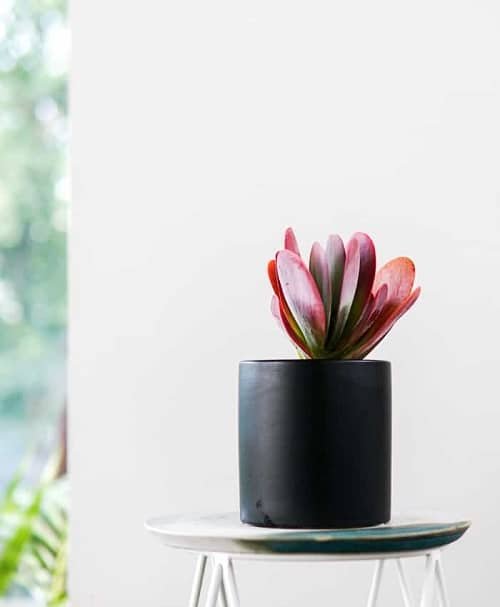
Botanical Name: Kalanchoe luciae
Just like the name, this charming variety produces yellow-green foliage with rosy-red margins. Each stem holds urn-shaped, pale green-white, often cream, pink or yellow blooms.
19. Earth Star
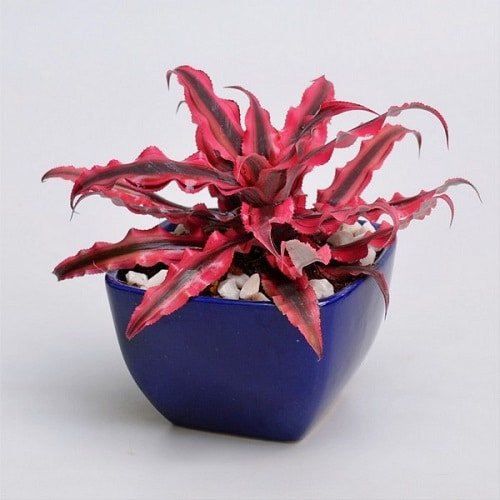
Botanical Name: Cryptanthus
The star-shaped leaves flaunt red, pink, bronze, green shades; it is best for indoor spaces due to its small size. This plant is low-maintenance and accommodates well to low lighting.
Source: balconygardenweb
